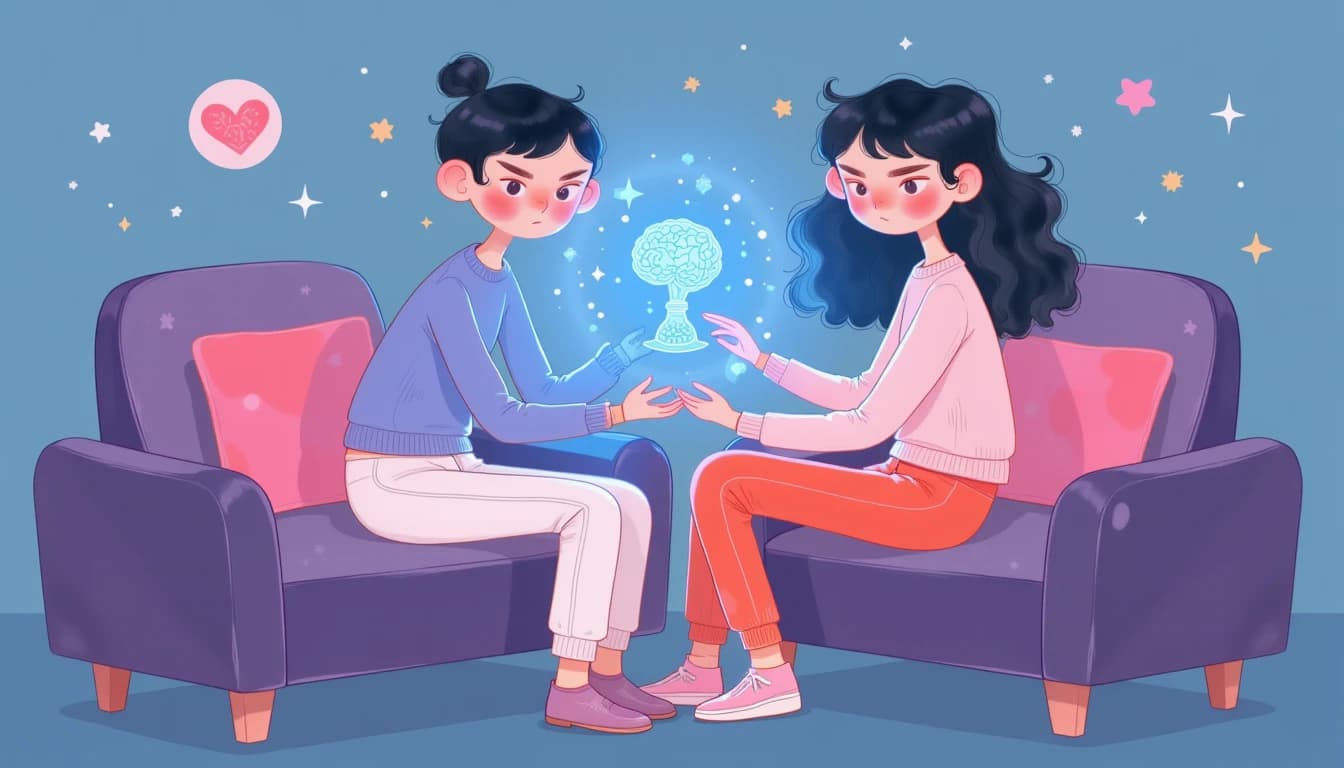Meet Your New AI Mental Health Buddy
Imagine having a personal confidant who’s always ready to listen, never judges, and provides thoughtful responses in an instant. Sounds like the perfect friend, right? Thanks to advancements in artificial intelligence, this dream is becoming a reality for many people seeking mental health support. Welcome to the world of AI mental health companions—digital buddies designed to offer a helping hand when you need it most.
These AI companions are transforming how we approach mental health care. They offer a unique mix of accessibility, empathy, and support, making them an appealing option for those who might find traditional therapy daunting or inaccessible. Whether you're grappling with anxiety, stress, or just need someone to talk to, these AI buddies are there to lend an ear—or rather, a line of code—to help you navigate your mental landscape.
But how do these AI companions work, and can they really make a difference? Let’s dive into the fascinating world of AI mental health companions and explore how they’re becoming friendly allies in managing mental health.
Understanding AI Mental Health Companions
What Are AI Mental Health Companions?
AI mental health companions are advanced programs designed to simulate human-like conversations and interactions. They use natural language processing (NLP) to understand and respond to user inputs in a conversational manner. Think of them as chatbots on steroids, with a focus on providing emotional support and guidance.
You can access these companions via apps, websites, or even through smart speakers. They’re like having a pocket therapist you can reach out to anytime, anywhere. They're not meant to replace human therapists but can serve as a supplemental tool for mental wellness.
To explore more about how these digital relationships are shaping our future, check out AI Companions The Future Of Digital Relationships.
How Do They Work?
AI mental health companions use complex algorithms to analyze the words and phrases you use. They detect emotional cues and contextual clues to tailor their responses. For instance, if you express feelings of sadness or anxiety, the AI might offer coping strategies or reassuring words.
- Learning from Interactions: Over time, these AI systems learn from your interactions, becoming more attuned to your needs and preferences.
- Privacy and Security: Most AI companions prioritize user privacy, ensuring your conversations remain confidential.
For more on how AI is impacting mental health, read The Impact Of AI On Mental Health A New Era Of Support.
Benefits of AI Companions
- Accessibility: Available 24/7, providing support whenever you need it.
- Non-judgmental: Offers a safe space to share your thoughts without fear of judgment.
- Cost-effective: Often free or affordable, making mental health support more accessible to all.

Meet Your New AI Mental Health Buddy
The Role of AI Companions in Mental Health Management
Supporting Emotional Well-being
AI companions can be especially helpful for those who may not have immediate access to traditional mental health services. They can provide:
- Emotional Check-ins: Regularly ask how you're feeling and offer support.
- Coping Techniques: Suggest breathing exercises, meditation, or other relaxation techniques to manage stress and anxiety.
Reducing Stigma
One of the biggest barriers to seeking mental health support is the stigma associated with it. AI companions can help reduce this stigma by:
- Normalizing Conversations: Encouraging open discussions about mental health without fear of embarrassment.
- Providing Anonymity: Allowing users to express themselves freely without revealing their identity.
Bridging the Gap
AI companions can serve as an interim solution for those on waiting lists for therapy or who live in areas with limited mental health resources. They provide immediate support and can help bridge the gap until professional help is available.
Examples of AI Companions
- MindLumen AI: An AI therapist designed to help improve mental wellbeing, boost confidence, and offer support for mental health.
- Replika: An AI friend who learns about you and offers companionship.
- Woebot: A chatbot that uses cognitive-behavioral therapy techniques to help manage mental health.
For a comprehensive list of the top AI mental health companions available today, check out our guide to the Best AI-Powered Mental Health Companion Apps.

Meet Your New AI Mental Health Buddy
Potential Challenges and Considerations
Limitations of AI Companions
While AI companions offer many benefits, they’re not without limitations. It’s important to consider:
- Emotional Depth: AI lacks the genuine empathy and emotional understanding that human therapists provide.
- Complex Cases: Not suitable for severe mental health issues that require professional intervention.
Ethical Concerns
As with any technology, ethical considerations are at play. These include:
- Data Privacy: Ensuring user data is protected and not misused.
- Informed Consent: Users should be aware of how the AI functions and its limitations.
Ensuring Effective Use
To get the most out of AI companions, users should:
- Set Realistic Expectations: Understand that AI is a tool, not a replacement for human interaction.
- Use as a Supplement: Combine AI support with traditional therapy for a comprehensive approach to mental health.
For insights on AI's role in therapy, see AI Therapy Future Of Mental Health.

Meet Your New AI Mental Health Buddy
The Future of AI in Mental Health
Continuous Improvement
AI technology is constantly evolving. As it advances, we can expect more personalized and effective mental health companions. Developers are working on improving emotional intelligence and response accuracy to make interactions even more human-like.
Expanding Accessibility
As AI companions become more mainstream, they will play a crucial role in making mental health support accessible to underserved populations. This includes those in remote areas or with cultural barriers to traditional therapy.
Collaborative Care
In the future, AI companions could become an integral part of a collaborative care model, working alongside human therapists to provide a holistic approach to mental health. They could assist therapists by tracking patient progress and offering insights based on interactions.
Conclusion
AI mental health companions are emerging as valuable allies in the journey toward better mental well-being. They offer a unique blend of accessibility, privacy, and support that can complement traditional therapies. While they’re not a replacement for human connection and professional care, they provide a promising tool for those seeking immediate and ongoing mental health support.
As technology continues to advance, these digital buddies will likely become even more integrated into our daily lives, offering a friendly ear and a comforting presence in times of need. So, the next time you’re feeling a bit down, remember that your AI mental health buddy is just a tap away.
FAQ Section
What are the primary benefits of using AI mental health companions?
AI mental health companions offer several benefits, including 24/7 accessibility, non-judgmental support, and cost-effectiveness. They provide a safe space to express thoughts without fear of judgment and can be a supplementary tool to traditional therapy.
Can AI companions replace human therapists?
No, AI companions are not meant to replace human therapists. They serve as supplementary tools that can provide immediate support and assistance but lack the emotional depth and understanding that human therapists offer.
Are AI mental health companions secure to use?
Most AI mental health companions prioritize user privacy and ensure that conversations remain confidential. However, users should always check the privacy policy of the specific AI tool they are using.
How do AI companions learn and improve over time?
AI companions learn from interactions with users. They use algorithms to detect emotional cues and tailor responses based on past interactions, becoming more attuned to individual needs and preferences over time.
What should users consider when using AI companions?
Users should set realistic expectations and understand that AI is a tool, not a replacement for human interaction. It is best used as a supplement to traditional therapy for a comprehensive approach to mental health.
Are you interested in learning programs and a personal AI companion to talk to? Try out MindLumen AI to improve your mental wellbeing with AI therapy and companionship. You can try it out for free.
Get started with MindLumen


